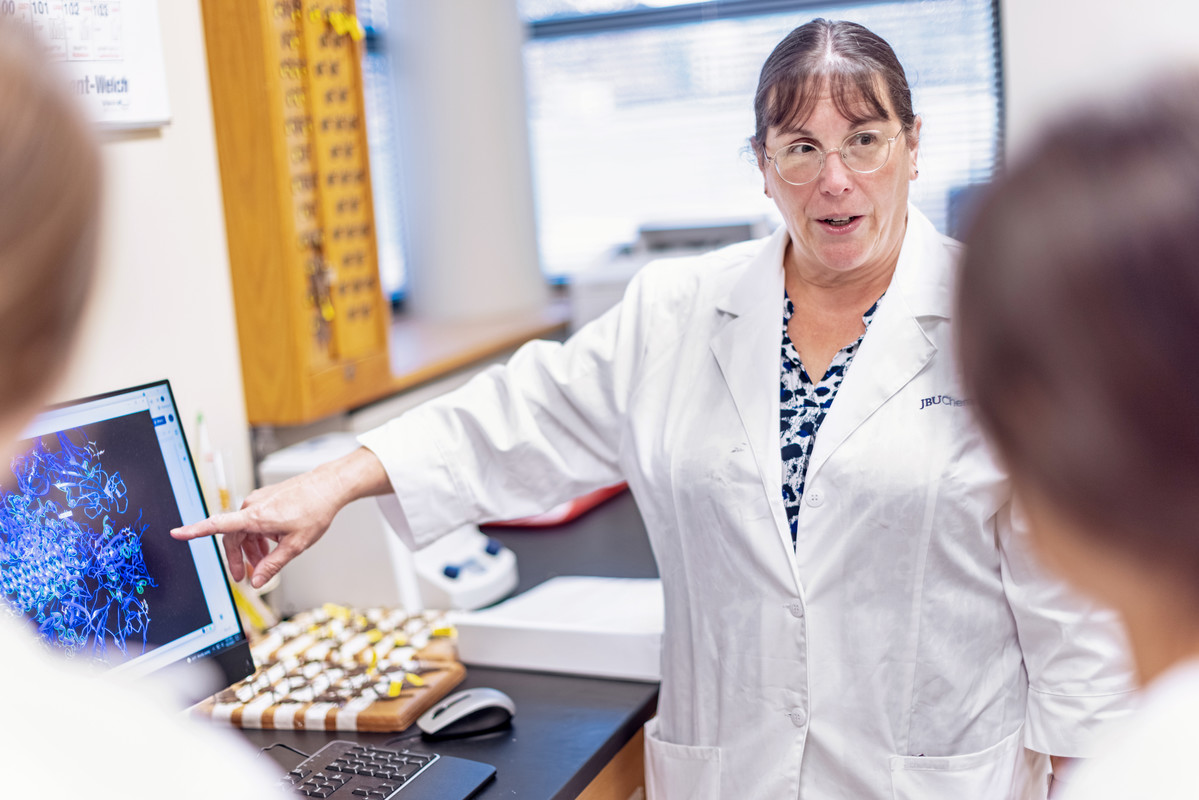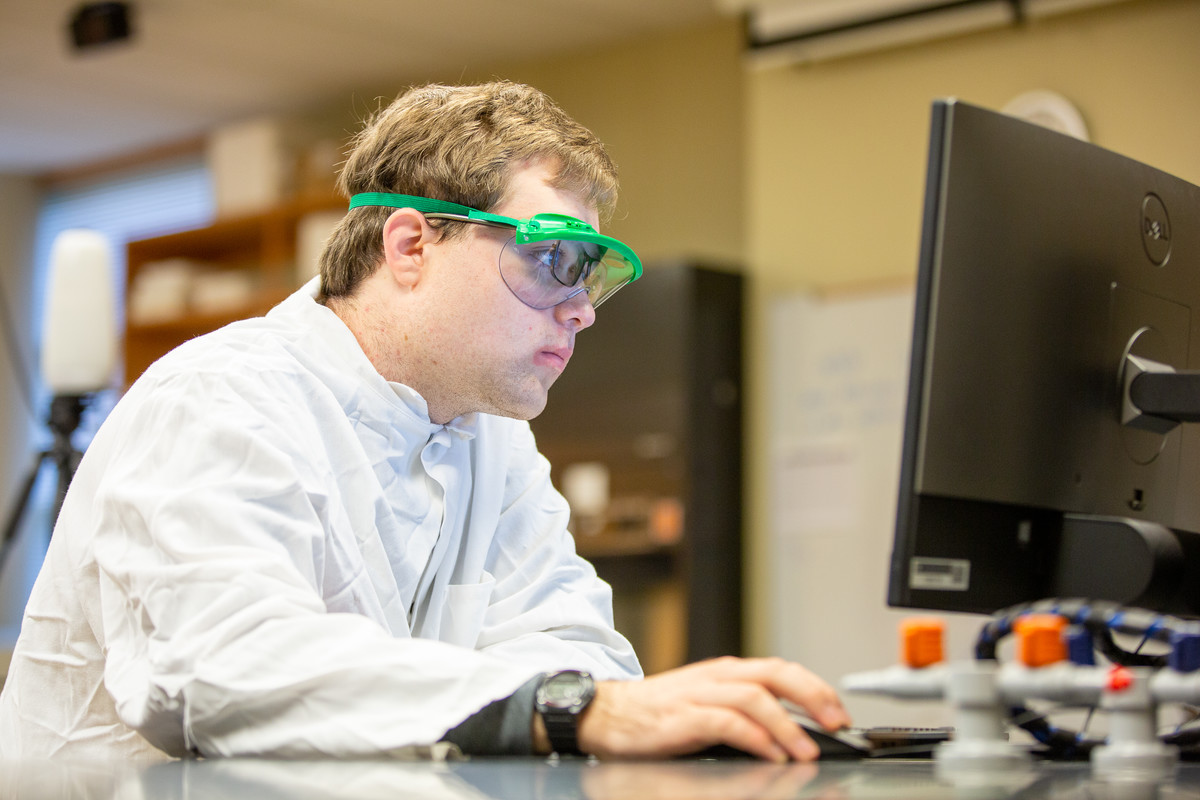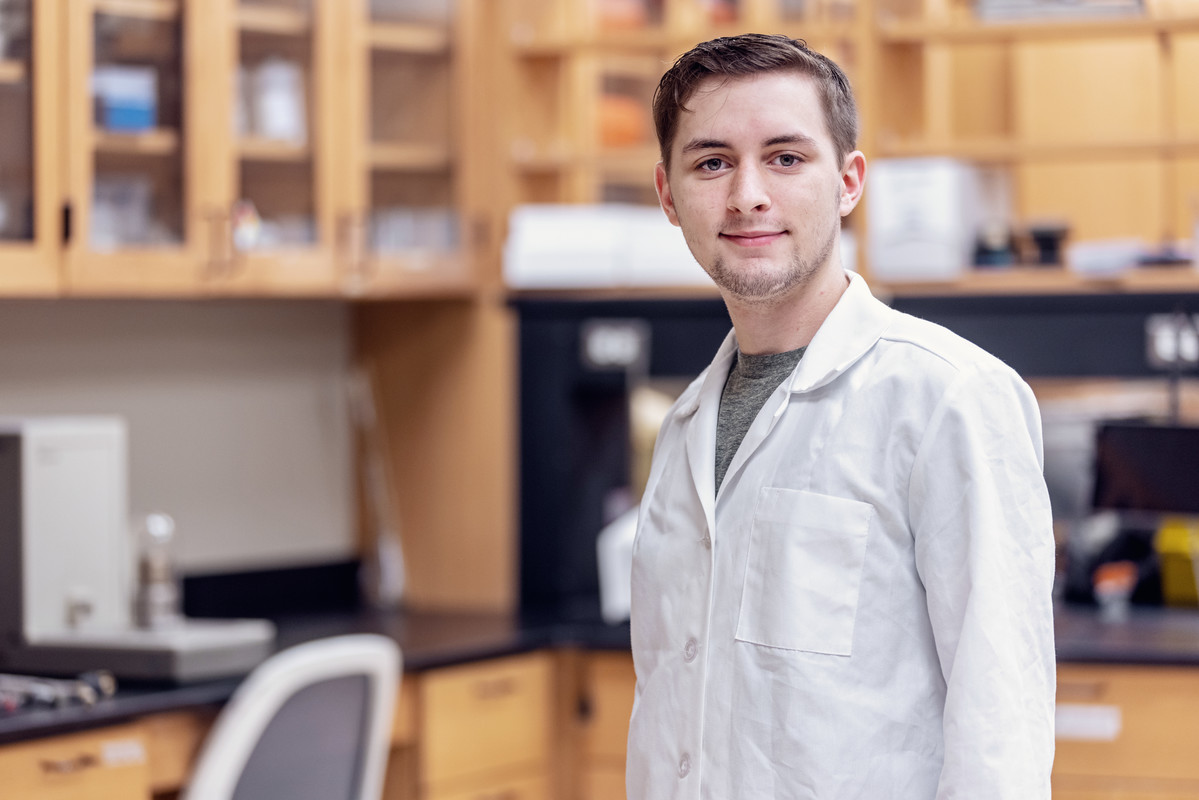- Give
- Alumni
- Parents
John Brown University
2000 W. University St., Siloam Springs, AR 72761479-524-9500
jbuinfo@jbu.edu
Major in Biochemistry
Become a chemist • Learn laboratory techniques • Impact your community
Study the molecules of life.
As a biochemistry major, you will be heavily mentored by faculty and access state-of-the-art labs and virtual reality technology to help you conduct and publish your research. You’ll receive the lab, instrument and safety training you need to enter the workforce or attend professional or medical school.
Start your applicationGraduate certified
Biochemistry students learn to use and are certified on industry-standard lab equipment throughout their education.
Be mentored
Biochemistry students are heavily mentored by faculty beginning their freshman semester.
Write a thesis
Under the guidance of faculty, biochemistry majors design and execute experiments and then write a thesis from their undergraduate research. JBU students have had their work published in major journals.
Discover how JBU will help you excel in the biochemistry field.
About biochemistry
At JBU, biochemistry students gain an understanding of the foundational levels of chemistry and get to explore how these principles apply to the field of biology.
Not sure which degree to choose?
Students interested in chemistry have several degree options based on future plans.
- The B.S. in Biochemistry is an excellent option for students planning a professional health career and/or preparing for graduate work.
- The B.A. in Chemistry is perfect for students who plan to enter the workforce immediately after completing the degree rather than attending a graduate or professional program.
- The B.S. in Chemistry is the preferred option for students planning a professional health career in a field such as pharmacy or students preparing for graduate work.
Learn more about the chemistry major.
What to expect as a biochemistry student at JBU

Get hands-on lab experience
Biochemistry students receive extensive safety training of chemical handling and hazardous waste while working in a hands-on environment from their first semester.

Publish research
Work with faculty on their research initiatives or conduct your own undergraduate research projects to ultimately publish findings in national scientific journals.

Prepare for graduate school
Many biochemistry students choose to continue their study in a particular field of interest with an advanced degree.
Meet our biochemistry professors
Questions?
Loading...
The future you starts here.
Equip yourself for a successful career and a life of purpose.
Resources
Policy Information
JBU does not unlawfully discriminate based on race, color, national or ethnic origin, sex, age, disability, marital status, military status, or age in the administration of its educational policies, admissions, financial aid, employment, educational programs, or activities.
John Brown University is a leading private Christian university, training students to honor God and serve others since 1919. Arkansas’ top-ranked university (The Wall Street Journal) and top-ranked regional university (U.S. News), JBU enrolls more than 2,200 students from 37 states and 42 countries in its traditional undergraduate, graduate, online and concurrent education programs. JBU offers more than 50 undergraduate majors, with top programs including nursing, psychology, construction management, graphic design, family and human services, and engineering. Eighteen graduate degrees are available in business, counseling, cybersecurity, and education.
Copyright 2024 John Brown University. All rights reserved.

